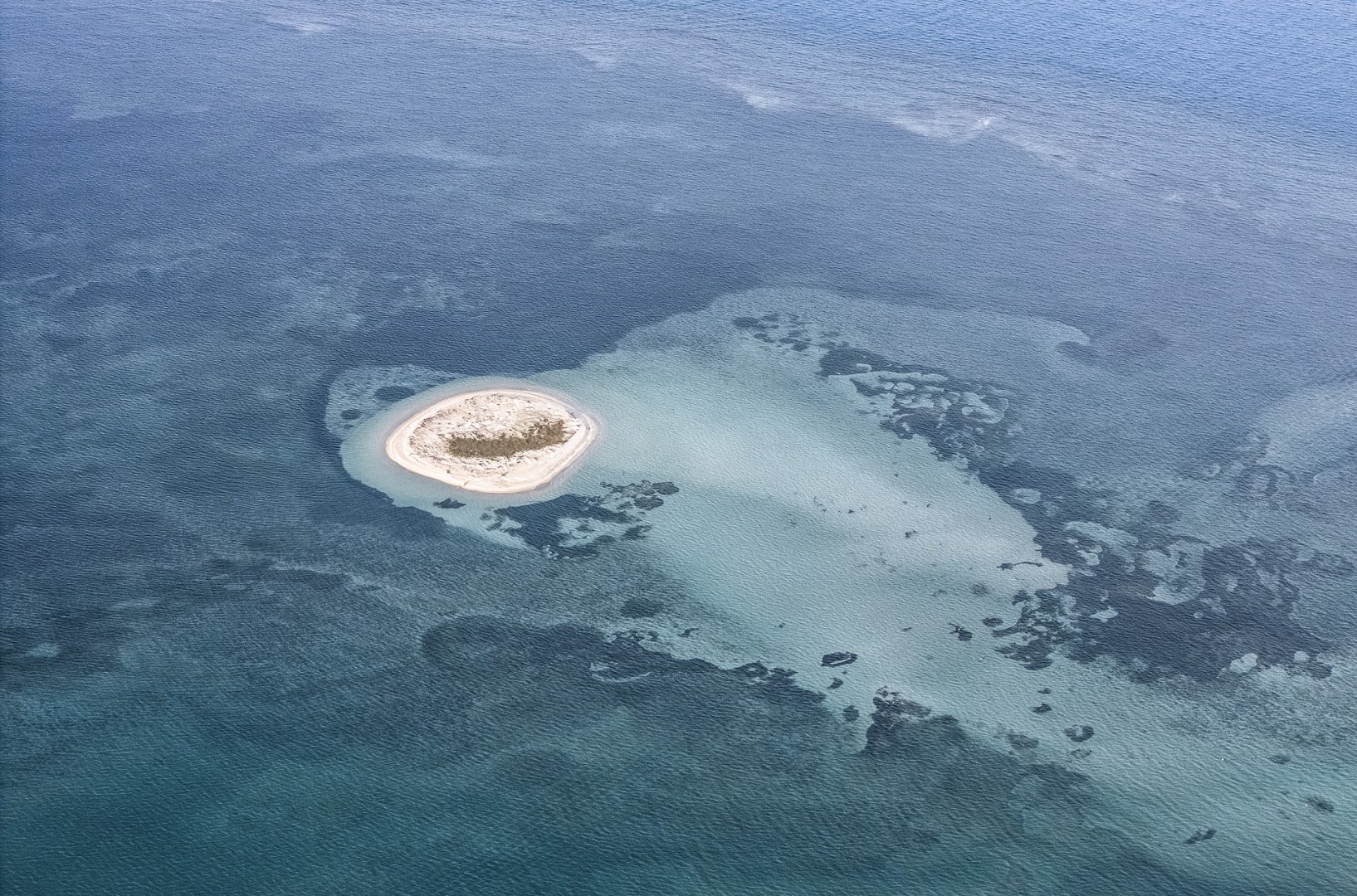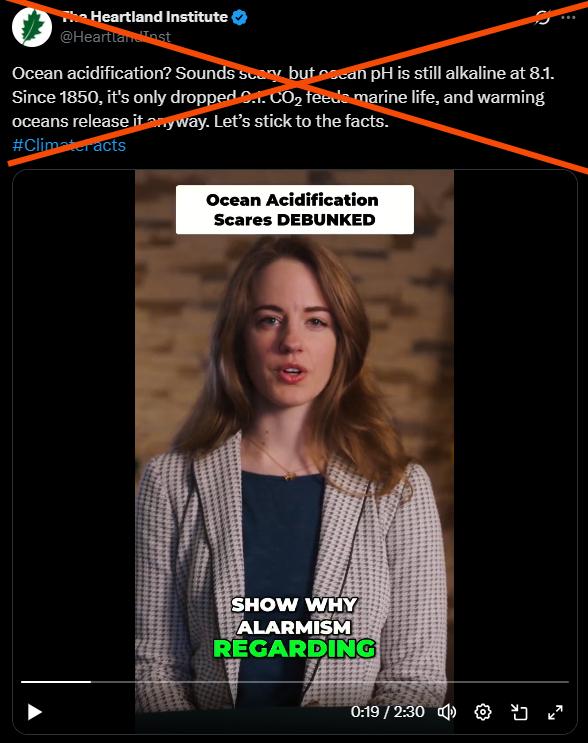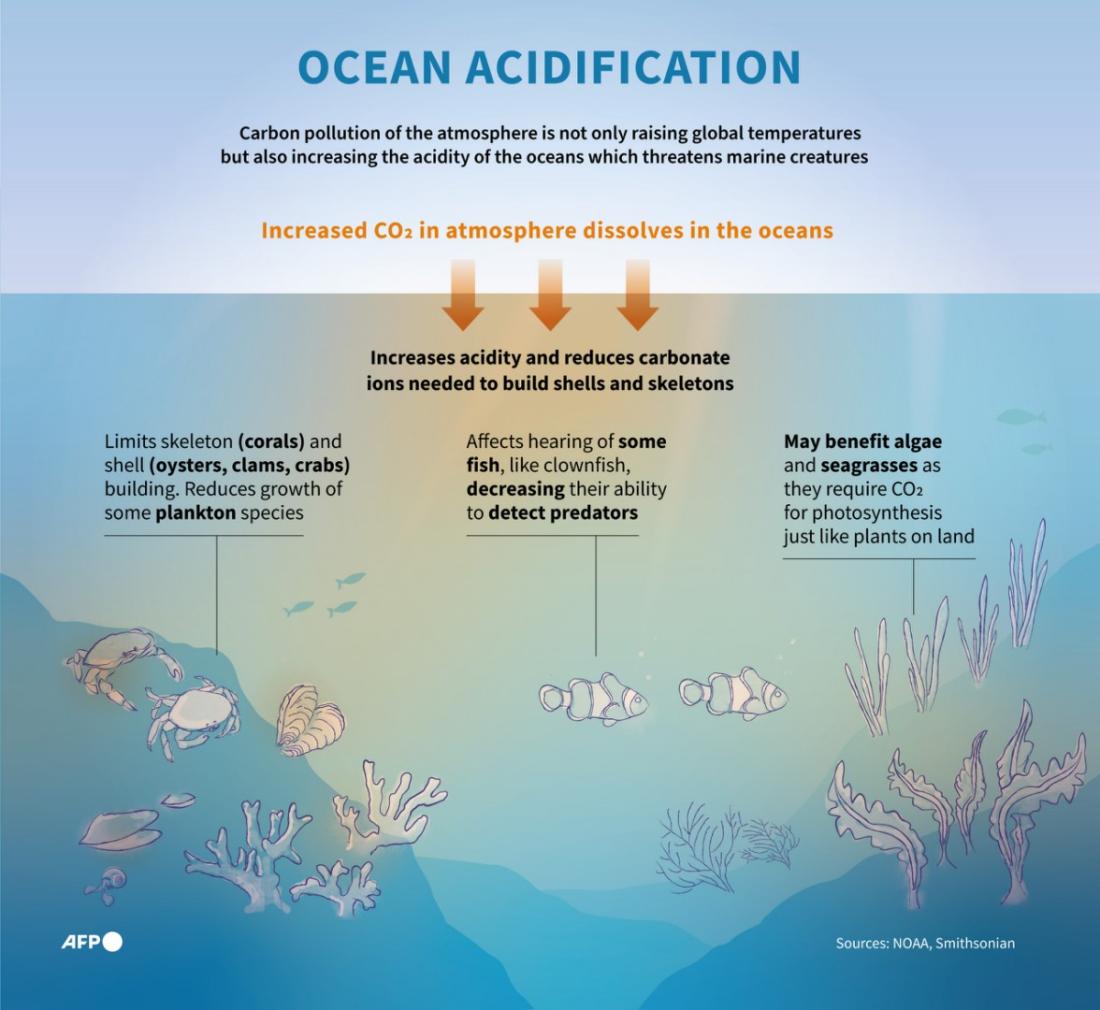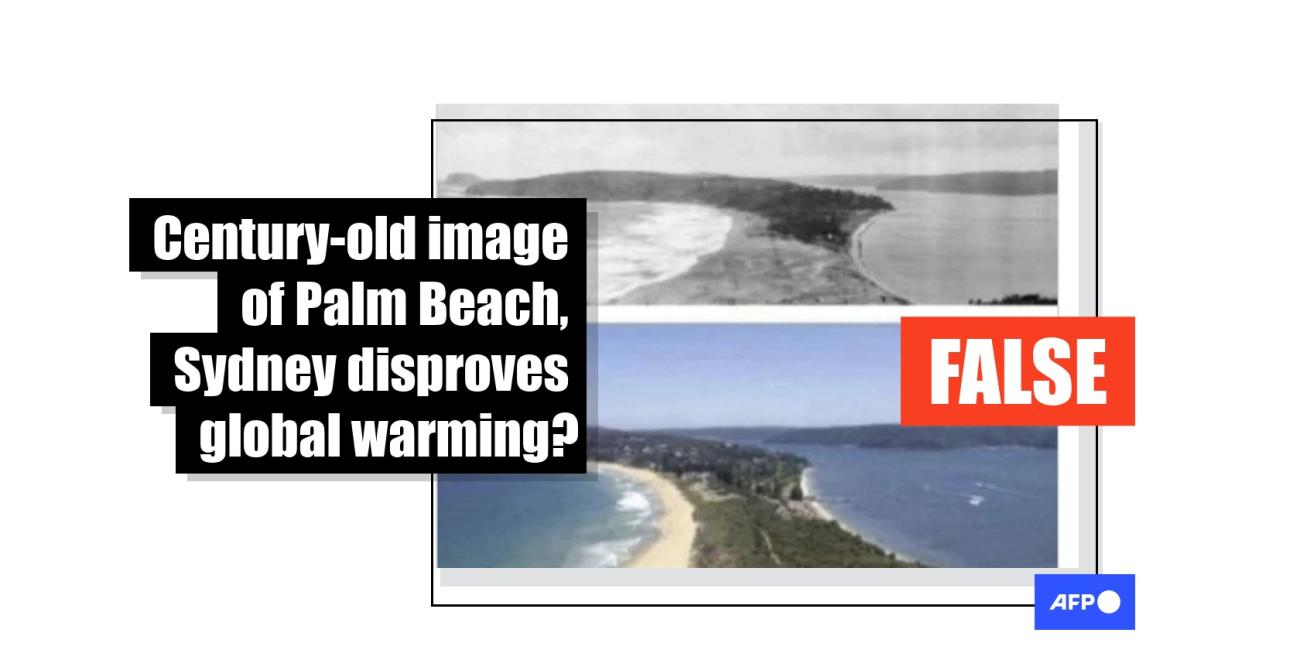
US think tank misleads on ocean acidification threat
- Published on June 11, 2025 at 17:18
- 4 min read
- By Manon JACOB, AFP USA
"Ocean acidification scares debunked," reads the text over a May 21, 2025 video posted to X by The Heartland Institute, a US free-market think tank (archived here), which AFP has investigated in the past.

The video, shared across platforms, takes on a "fact-check" format to claim ocean acidification -- a process in which marine ecosystems become more acidic (archived here) -- is not cause for concern for underwater environments and species' health.
"The health of ocean life is improved, not harmed by more carbon dioxide," Linnea Lueken, an institute fellow, is heard saying in the video.
Claims about an "ocean acidification hoax" gained additional ground in June as the United Nations hosted its third ocean summit in Nice, France.
The gathering calls on countries to commit to money and stronger protections for the seas even as nations feud over deep sea mining, plastic litter and exploitative fishing, against a backdrop of wider geopolitical tensions.
But posts questioning the threat of ocean acidification are misleading -- dismissing already observed effects of the phenomenon on ecosystems and species, scientists told AFP.
Changes to oceans are currently happening faster than a previous rate observed over millions of years.
'Acidic' vs 'acidification'
Oceans cover over 70 percent of the globe and have absorbed thus far 90 percent of the warming caused by burning fossil fuels, shielding societies from the full impact of greenhouse gas emissions (archived here).
The acidity of water is measured on the pH scale (archived here), ranging between 0 (highly acidic) and 14 (highly alkaline), with 7 being neutral.
The Heartland Institute video points out that oceans are not in acidic ranges at a global average of 8.1 pH, but this is not what climate scientists are claiming. Rather, research is showing that further acidification on the pH scale is a real, existing and continuing threat.
Excess carbon emissions have led to the average global surface of the ocean dropping 0.1 in pH since preindustrial times, according to research conducted by US scientists (archived here).
While this change is seemingly small, its impacts are substantial, and more carbon dioxide will continue altering the chemistry of marine ecosystems, which had been steady for about 300 million years before that, experts told AFP.
Columbia University professor Bärbel Hönisch (archived here), who specializes in paleoceanography, told AFP on June 6 that "disturbingly, the current rate of ocean acidification is still ten times higher" than the rate of acidification across "a geologic CO2 release event that happened about 56 million years ago and caused widespread dissolution of calcium carbonates at the seafloor, dwarfism and extinction of many calcifying organisms in the ocean."
Over the last 200 years, humans have caused an average change in ocean acidity that is about ten times faster than any other ocean pH change in geological history, scientists estimate (archived here).
"It is correct that ocean pH is unlikely going to drop into the acidic range," Hoenisch told AFP. "However, that is not what scientists are concerned about. It is the direction of change that matters," and oceans are more acidic today than they were previously.
A similar example would be to look at the phenomenon of global warming even in regions that have freezing temperatures. These regions are still, in fact, warming and affected by climate change.
With a pH drop to 7.9 -- as predicted (archived here) for the end of the century under middle range emission scenarios -- the oceans' hydrogen concentration will have doubled since preindustrial times.
Scientists have commonly referred (archived here) to the phenomenon as climate change's "evil twin," as it threatens marine chemistry and biology, causing direct sea changes.
Observed and continuing effects
"More carbon dioxide is changing the very surroundings of all marine life. Simpler organisms and younger organisms have lower ability to tolerate these harsher environmental conditions," climate scientist, Sarah Cooley (archived here), said on June 5.
Until recently, Cooley directed the National Oceanic & Atmospheric Administration's Ocean Acidification Program.
Acidification also leaves marine life more exposed to other sudden changes, such as marine heatwaves or oxygen loss -- with some regions and species more affected than others (archived here and here).
"This is similar to how a person with a chronic medical condition, such as diabetes, can be judged healthy on average, and still be more susceptible to other medical complications," Cooley said.
More acidic water directly damages algae, corals, mollusks and the phytoplankton that feed a host of marine species (archived here and here).

Even with warming as it stands today -- about 1.4C degrees above pre-industrial levels -- mass coral death is occurring (archived here), and many scientists believe the global collapse of tropical reefs may already be underway.
Rather than disappear completely, coral reefs as they exist today will instead have to evolve into something very different, marine scientists previously told AFP.
More acidification is almost unavoidable considering the rate of human greenhouse gas emissions, but a slower rate will enable more marine organisms to adapt to the new norms, experts said.
Read more of AFP's climate debunks here.
Copyright © AFP 2017-2026. Any commercial use of this content requires a subscription. Click here to find out more.
Is there content that you would like AFP to fact-check? Get in touch.
Contact us




